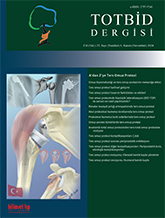
Despite the presence of clear guidelines for the management of infections following hip and knee prosthesis, the diagnosis and treatment of shoulder periprosthetic infections remain controversial. Although periprosthetic infections after shoulder arthroplasty are rare, they can lead to severe complications. There is still no consensus on the definition of shoulder periprosthetic infections, and diagnostic methods vary. Treatment options include irrigation and debridement with implant preservation, one-stage revision, two-stage revision, and resection arthroplasty. No universally accepted standard exists for these treatments, and decisions are made based on various factors such as the type of bacteria causing the infection, the patient's medical condition, and their expectations. This review will address the definition, risk factors, diagnostic methods, prevention strategies, and treatment approaches for shoulder periprosthetic infections.